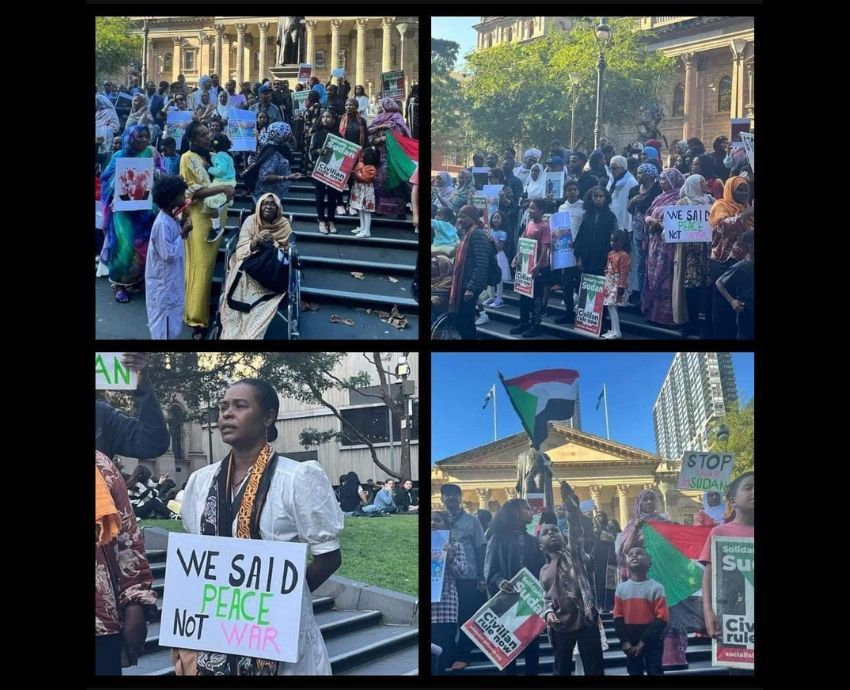
At least 427 people have been killed as at April 23, as clashes between the Sudanese Armed Forces (SAF) and the paramilitary Rapid Support Forces (RSF) entered their ninth consecutive day.
The Sudan Doctors Union (SDU) reported on April 24 that various areas of the capital Khartoum were being bombarded, which had resulted in civilian deaths in the Kalakla area. It added that a hospital, already overcrowded with people with serious injuries, had also been hit with the number of people injured reaching 50.
According to the World Health Organization (WHO), 3700 people have been injured since fighting broke out on April 15. Multiple ceasefire declarations have failed to hold, including a three-day truce that was confirmed by both the RSF and SAF on April 21 to mark the Muslim holiday of Eid al-Fitr. The United Nations Office for the Coordination of Humanitarian Affairs (UNOCHA) reported ongoing fighting over the weekend, including “unverified reports indicating clashes [had] intensified in Bahri and Omdurman on April 22”.
In a separate statement released earlier on April 24, the SDU had reported nine deaths — in Khartoum, Omdurman, Nyala, and Marawi — along with 36 injuries among civilians on April 23.
It added that hospitals had been difficult to access due to lack of mobility given the security situation in the country. A widespread internet blackout was also reported by internet watchdog Netblocks, “with connectivity at 2% of ordinary levels” late on April 23.
As of April 23, 13 hospitals had been bombed and 19 had been forced to evacuate, the SDU said. 69% of hospitals adjoining the conflict zones are still out of service. These include 55 of the 79 basic hospitals in Khartoum and other States affected by the fighting.
Existing medical facilities are also on the brink of collapse due to a lack of medical personnel, medical supplies and electricity. The SDU added that six ambulances had also been attacked, while others were not allowed to pass through to transport patients or receive aid.
Tens of thousands of people have been forced to flee, with the bulk of displacement reported in the north, west, and southern states of the Darfur region, the states of Khartoum, Blue Nile, North Kordofan, and the Northern State, according to preliminary findings released by the International Organization for Migration’s (IOM) Displacement Tracking Matrix (DTM) on April 22.
People are fleeing not just due to the armed clashes, but also because of severe shortages of water and electricity — as observed in Khartoum’s Bahri locality. People are also fleeing to Egypt, South Sudan and Chad, according to the DTM report.
Meanwhile, foreign countries including the United States, Britain, France, Germany, Russia, Italy, Spain, Jordan and Canada have accelerated the evacuation of their citizens and diplomats. Turkey initiated evacuation efforts via road from the southern city of Wad Madani on April 23. Egypt has evacuated its citizens through land ports. UN convoys have also transported foreign citizens to Port Sudan for evacuation.
While the US has temporarily closed its embassy in Sudan, it has announced that its forces “will remain deployed in Djibouti to protect US personnel and others until the security situation no longer requires their presence”.
Other countries including India, Libya, Tunisia, Japan, Sweden, Ireland, Ghana and Kenya are also coordinating evacuation efforts. Nigeria has requested safe passage for 5500 of its citizens, which includes students.
In a statement on April 22, the SDU warned that the ongoing evacuation efforts were an indication of not only the failure of the demand for a ceasefire, but pointed to the expectation that the conflict in Sudan will continue and “spread in residential neighborhoods” across large parts of the country. This has resulted in concerns — especially from foreign countries — of an increase in violence and casualties.
SDU also said that evacuations would put Sudan’s own defenseless citizens in greater danger, “as experience has shown that the parties to the conflict [the RSF and the SAF] are keen on [saving] the lives of foreign nationals only, without any regard for the lives of peaceful Sudanese citizens.”
Amid calls by the US and the European Union for talks and a political settlement, Sudan’s revolutionary forces have reiterated the need for an urgent ceasefire, while also steadfastly emphasising that any meaningful solution to the crisis in the country must emerge from the demands of the years-long mass movement which had declared “No Negotiations, No Compromise, No Partnership” with the military.
[Abridged from Peoples Dispatch.]